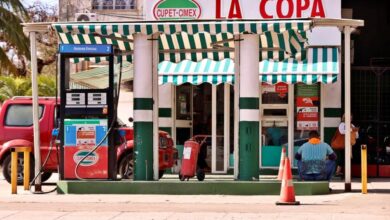Paraguay: the US Army has arrived
Listen this article
Before an extraordinary session, the Chamber of Senators approved the US military stay in Paraguayan territory

On February 26, the Chamber of Senators of Paraguay, by an immense majority, approved the stay of several members belonging to the United States Military Forces. According to Prensa Latina, this approval was given within the framework of the "joint exchange for military training called 'Joint Combined Exchange Training' (JCET), between the special forces team of the United States and the Paraguayan Anti-Narcotics Association.
Leer en español: Paraguay: ¡Los militares estadounidenses han llegado!
The 12 soldiers are expected to arrive in the country on March 9, and leave on April 12 of this year. According to the newspaper Hoy, "this group is considered one of the most capable by preparation and means in the armies of the world. They are experts in all kinds of weapons and combat techniques. They receive the best and toughest training possible. "
Aprueban ingreso de militares norteamericanos a nuestro paíshttps://t.co/pJPiQ5GEf8 @oac_senado pic.twitter.com/Z4LbQFuj1L
— SenadoPy (@SenadoresPy) 26 de febrero de 2019
However, the Political Concertation of progressive parties and movements of Paraguay, Guasú Front, manifested by means of a communiqué their absence in the extraordinary session, which touched as the only point the approval of the entry of the military. In addition, it was argued that his absence was taken as "a position of rejection, at this juncture, to the threat repeatedly expressed by Donald Trump's Government of using its interests in the Bolivarian Republic of Venezuela, following a long tradition of that country of invade and intervene militarily in Latin America and the rest of the world (…)".
Comunicado ante la no presencia de los Senadores del FG, en la sesión extraordinaria de la Cámara de Senadores convocada para hoy, que tenía como único punto del orden del día, el tratamiento del ingreso de personal militar y armamentos de los Estados Unidos De Americapic.twitter.com/iRDvE5w1ms
— Frente Guasu (@FrenteGuasuPY) 26 de febrero de 2019
Maybe you're interested in reading: Nicaragua: can Ortega solve the crisis?
Intervention in times of uncertainty
After this decision, two scenarios were generated. The first one not only creates a political discontent promoted by the opposition but also causes the government of the current president, Mario Abdo Benitez, to be strongly criticized for tending to resemble the dictator, Alfredo Stroessner, due to his political decisions.
Stroessner was in power for 35 years, and, according to Ricardo Canese, member of the Southern Common Market (Parlasul) in dialogue with Prensa Latina, "now President Mario Abdo Benítez, Stroessner's heir, reproduces the same thing to put the country in the hands of the US and Brazilian military. "
On the other hand, in a more international framework, the arrival of the US military to a Latin American country, such as Paraguay, represents a latent danger, and more so with the situation in the region. Before the pull and loosen between Venezuela, the United States and Russia, with only one false foot, a war could be unleashed, even more so with US military forces so close to Venezuela.
In addition, the United States has repeatedly stated the need to intervene militarily when necessary. This was stated by President Donald Trump when he met with his Colombian counterpart, Iván Duque; and so said Security Adviser, John Bolton, again, before the arrival of Juan Guaidó in Venezuela : "Any threat or act against his safe return will be received with a strong and significant response from the United States and the international community".
Likewise, Norberto Emmerich, Doctor in Political Science, in dialogue with the BBC, affirms that, while the arrival of 12 US military personnel would not represent any threat at another political moment, "it occurs at a very sensitive moment for the region where it exists, even if it is far away, the possibility of a potential military intervention by the United States in Venezuela".
In the same way, it affirms that it is an intelligence strategy on the part of the North American country, because with the military presence it sends a message to Maduro and to the followers of the regime, "the United States manages to send to Venezuela the message that it is isolated and that more Latin American countries have good relations with Washington".
LatinAmerican Post | Laura Viviana Guevara Muñoz
Translated from "Paraguay: ¡los militares estadounidenses han llegado!"





